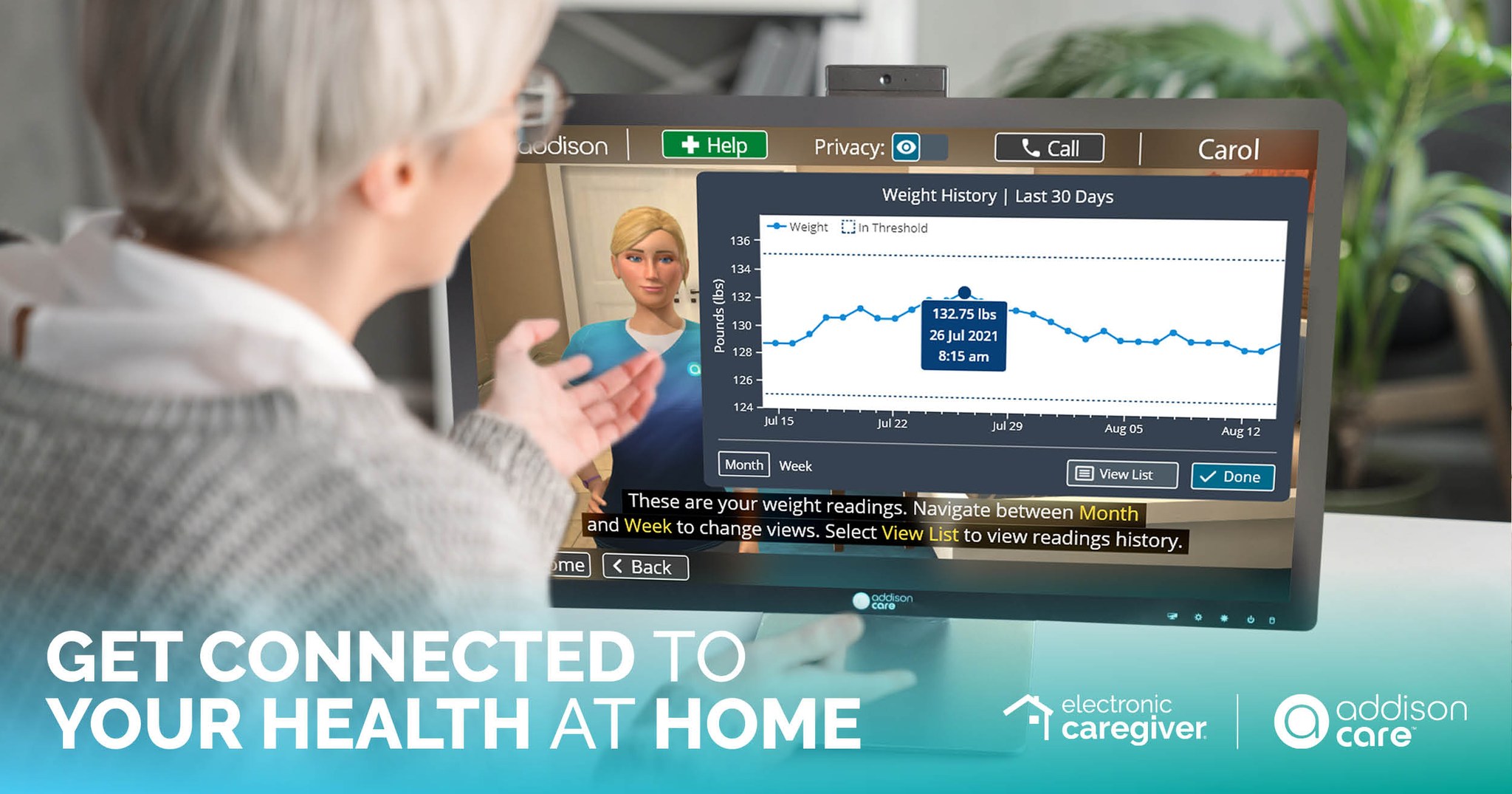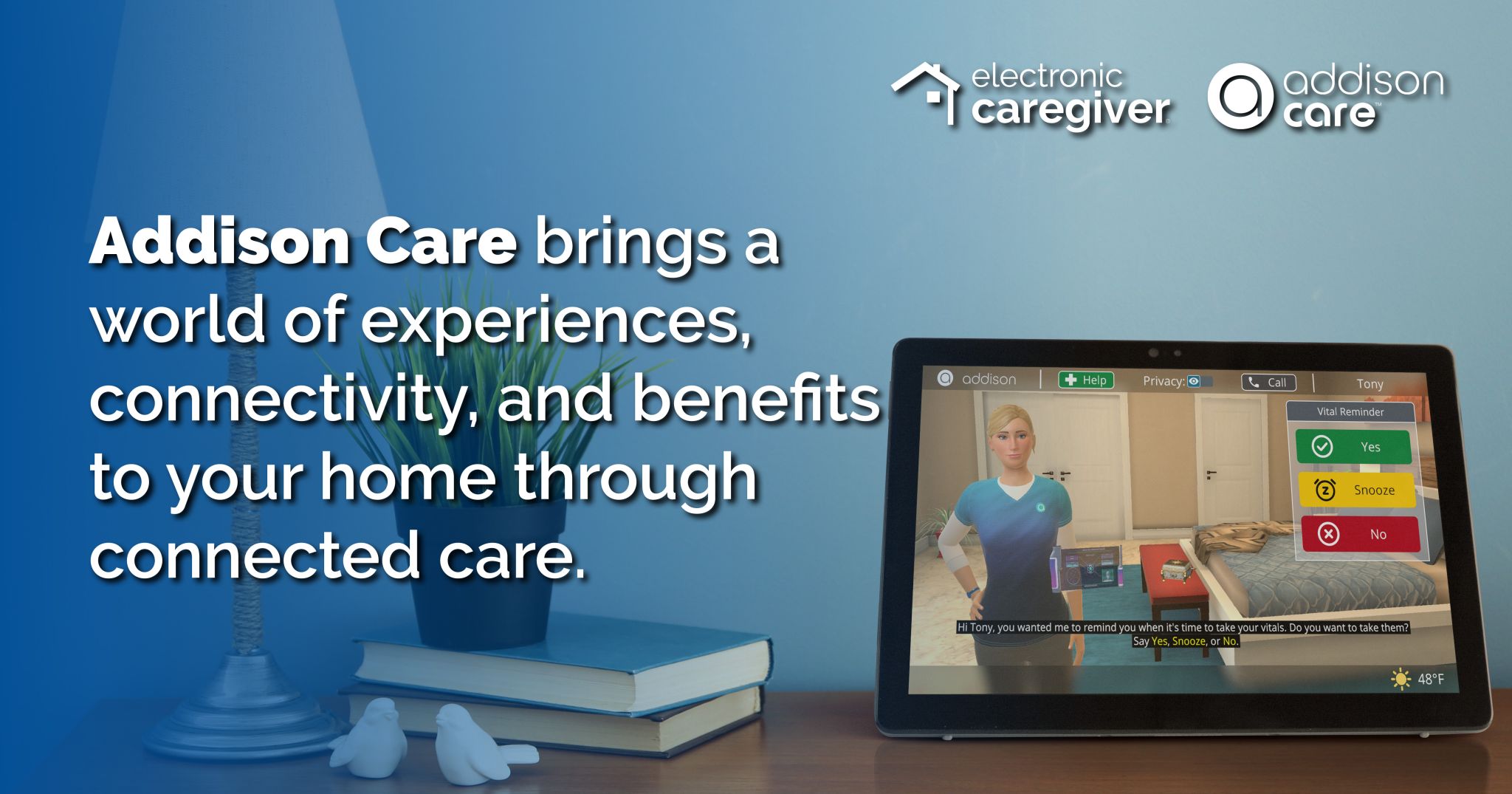My company, Electronic Caregiver, Inc., is centered around CARE. Therefore, every product we offer enhances care and wellness. Almost all of our staff members know what it feels like to be a caregiver. That is by design. If you follow this blog, you know I believe it’s imperative to be intentional from the customer forward when building any company. If your company doesn’t have the highest empathy for your customers, the service they receive will reflect that lack. For all of us connected to Electronic Caregiver, it’s all about CARE. Consequently, we substantially positively impact the symptoms of caregiver stress.
Caregiving Challenges
A considerable part of life is caring for others. For some, caring for others IS their life. Whether through the love of family or employment and the love of people, caregivers fill the human gaps in our country and worldwide. Health topic coverage on the US Department of Health and Human Services website states that “Caregivers care for someone with an illness, injury, or disability. Without a doubt, caregiving can be rewarding, but it can also be challenging. Accordingly, stress from caregiving is common. Women, especially, are at risk for the harmful health effects of caregiver stress. These health problems may include depression or anxiety. There are ways to manage caregiver stress.”
Frequent Symptoms of Caregiver Stress
1. DENIAL about the disease and its effects on the person who has been diagnosed. “I know Mom will get better.”
2. ANGER at the person with the disease, others, or people who don’t understand what is happening. “If I have to explain this disease and its limitations again, I will scream.”
3. ANXIETY about facing another day and what the future holds. “What happens when he/she needs more care than I can provide?”
4. DEPRESSION begins to affect the ability to cope. “I don’t care anymore.”
5. IRRITABILITY leads to moodiness and triggers negative responses and reactions. “Leave me alone!”
 Can Lead to Adverse Actions
Can Lead to Adverse Actions
6. SOCIAL WITHDRAWL from friends and activities that once brought pleasure. “I don’t care about getting together with friends anymore.”
7. EXHAUSTION makes it nearly impossible to complete daily tasks. “I’m too tired for this.”
8. SLEEPLESSNESS caused by a never-ending list of concerns. “Can I meet his/her needs?”
9. LACK OF CONCENTRATION makes it difficult to perform familiar tasks. “I was so busy I forgot we had an appointment.”
10. HEALTH PROBLEMS begin to take their toll mentally and physically. “I can’t remember the last time I felt good.”
Symptoms of Caregiver Stress Increases Other Risks
It is true caregivers who experience any of the ten listed symptoms of caregiver stress are at a higher risk of misusing alcohol or drugs, including prescription medications. Further, if they don’t eat a balanced diet and get adequate rest, they are even more likely to experience burnout and personal failure during or immediately after these stressful times. Caregivers need to prioritize their own needs to prevent these adverse outcomes. Primarily, awareness is key.
Aging Care compares the similarities and differences between professional and family caregivers. “Each professional caregiver, like each family caregiver, has unique talents and flaws that can help or hinder their ability to cope with caregiver stress. That’s why counseling for caregiver burnout is beneficial for anyone dealing with elder care issues regularly.”
In addition, we need to remember that professional caregivers go home from caring for our family members to caring for their own. The job of caregiving always continues for them. Therefore, it is vital that these compassionate individuals also take care of themselves. Aging Care’s article explains this significant aspect of caregiving.

Take Care When Giving Care
Mayo Clinic Staff authored an article offering tips for caring for yourself, especially if you are giving care. “A caregiver is anyone who helps another person in need. A person in need might be an ill spouse or partner, a child with a disability, or an aging friend or relative.”
Landmark Senior Living reports that “Caregivers report higher levels of stress than people who are not caregivers. Caregivers must know that they, too, need help and support.” And Evelin De La Rosa of AARP agrees: “Caring for someone can be a challenging task, both emotionally and physically.” As a result, it can take a toll on even the most resilient individuals. Numerous resources and tools can assist you in managing the care of your loved one and taking care of yourself. Most importantly, remember, it’s crucial to prioritize your well-being to provide the best care possible to someone else.
Mayo Clinic Suggests These Care Tips
Ask for and accept help. Make a list of ways in which others can help you. Then, let them choose how to help. Ideas include taking regular walks with the person you care for, cooking a meal for you, and helping with medical appointments. Focus on what you can do. At times, you might feel like you’re not doing enough. But no one is a perfect caregiver. Believe that you’re doing the best you can. Set goals you can reach. Break large tasks into smaller steps that you can do individually. Make lists of what’s most important. Follow a daily routine. Say no to draining requests, such as hosting meals for holidays or other occasions.
Get connected. Learn about caregiving resources in your area. There might be classes you can take. You might find caregiving services such as rides, meal delivery, or house cleaning. Join a support group. People in support groups know what you’re dealing with. They can cheer you on and help you solve problems. A support group also can be a place to make new friends. Seek social support. Stay connected to family and friends who support you. Make time each week to visit with someone, even for a walk or a quick cup of coffee.
Take care of your health. Find ways to sleep better. Move more on most days. Eat a healthy diet. Drink plenty of water. Sleep Many caregivers have trouble sleeping. Good sleep is essential for health. Talk to your healthcare professional if you have trouble getting a good night’s sleep. See your health care professional. Get the vaccines you need and regular health screenings. Tell your healthcare professional that you’re a caregiver. Talk about worries or symptoms you have.

About Electronic Caregiver
Electronic Caregiver, founded in 2009, is a national digital health technology company based in Las Cruces, New Mexico. It offers personal emergency response systems and remote patient monitoring and is the creator of Addison, the Virtual Caregiver. The company launched its Clinical Triage and Telehealth Services Center in October 2021. The Center offers virtual health coaching and care coordination services, improving patient outcomes. Electronic Caregiver is a leader in the industry, making the Inc. 5000 list two years in a row. The Inc. 5000 is the most prestigious ranking of the fastest-growing private companies in America.
Electronic Caregiver is a company that already serves professional and family caregivers alike. Our products range from simple emergency response systems to remote patient monitoring and virtual care. The full triage center is also for our customers who require consultation, health coaching, or intervention when their vital results surpass predetermined levels.
In the end, more nuggets of sage advice can make the caregiving journey more manageable, including respite care, taking leave from employment, and asking for the help you need, which is one of the most difficult for us. To be sure, you can find resources to ease your journey and give you confidence in knowing your recipient is well cared for. Undoubtedly, this will do wonders for any caregiver stress you might be experiencing.